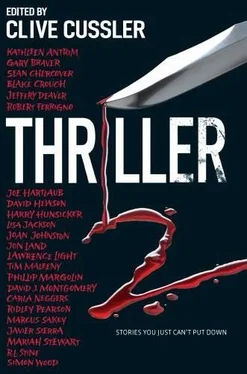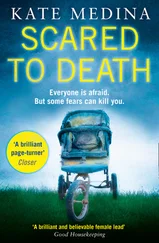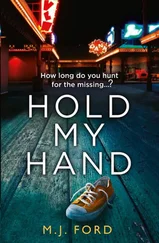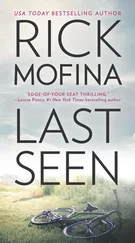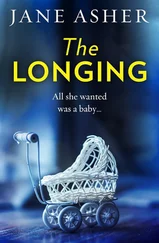“This.”
The pen shattered the lens before puncturing the right eye. Jim shoved it forward with an underhand motion, rising out of his seat as he forced it deeper into Carl’s brain. The overstuffed chair flipped backward and Carl’s head hit the wood floor like an overcooked egg. His legs kicked once, twice, and then he was dead.
Jim came around the desk and knelt next to his editor. There was surprisingly little blood, and he made a mental note to get that right the next time he wrote a murder scene.
He stood and ran his hands through his hair, willing his heart to slow down. Took a deep breath, then another, opened the door to his study and prayed he hadn’t written himself into a corner.
The town house was quiet. But there, almost beyond hearing, tiny voices from downstairs. Jim felt a surge of adrenaline and bounded down the stairs two at a time.
Emily was sitting on the couch, watching television. She smiled when he cleared the threshold and Jim felt his heart explode. Before she could say anything he was across the room with his arms around her. He kissed her and let it linger until she gave him a squeeze and stepped back to look at him.
“It’s nice to see you, too.”
“I didn’t hear you come in.”
“I knew you were writing, silly. I never disturb you when your door is closed.”
“You look nice.” Jim let his eyes wander across his wife from head to toe, her simple cream blouse and brown skirt a nice complement to her hair. He thought about how she’d been wearing a dress in the upper left quadrant on the computer and then slacks in the third one. How she’d been lugging a heavy briefcase in one frame and then running her hands through her hair in the next. They must have shot the video on different days, or perhaps it was some other technical wizardry.
Amazing what they can do with computers nowadays.
Continuity and attention to detail did matter, but not as much as knowing your characters. He’d known his editor for a long time and could tell when he was lying. When to suspend disbelief.
Emily never came into his study. He’d wait until she went to sleep, then move the body into the garage. A cop he’d interviewed for a story last year told him about a pier on the west side where the mob guys liked to dump bodies. Something about the currents pulled the body under, then took it out to sea.
He’d keep Carl’s cell phone and make random calls to restaurants and airlines over the next couple of days, make it seem like Carl was still alive, then break the phone into pieces and throw them in the trash.
“Did you cut yourself?”
Jim glanced down at the red smear across his right hand. He forced a smile and wiped it across his jeans. “Just ink.”
“You and your pens.” Emily stepped over to an end table where an answering machine sat, its light blinking. “Your editor called and said he might be coming over. Want me to play the message?”
“No, thanks. I already talked to him.”
“What did he want?”
“The usual. Deadlines.”
“You finally get that ending figured out?”
Jim rubbed his fingers together, where after years of writing, ink the color of blood had left its mark.
“Yeah,” he said. “I think I’m happy with how the story is going to end.”
This former P.I. has the experience to infuse his writing with a heavy dose of authenticity. His realistic portrayals of both cops and the down-and-outers of the world have garnered Sean high praise and well-deserved awards. His first novel, Big City, Bad Blood, even gets praised on the FBI’s Web site for its accurate depiction of law enforcement. His writing has been compared to Steve Hamilton, Lawrence Block and Dennis Lehane, but as his readers know, Sean has a powerful voice all his own.
Sean’s intense love of scuba diving is sometimes reflected in his fiction, so it’s fitting that his experience in the waters of the Caribbean can be felt in “A Calculated Risk.” Tom Bailey, the main character, uses his deep passion and understanding of the water and boats to make a living. He’s brushed up against the wrong side of the law many times before but this job takes him firmly over the edge. The real question is-will he be able to come back?
Tom Bailey turned the wheel over to starboard and guided his forty-two-foot power catamaran, Zombie Jamboree, just inside the coral reef, relying on the lower helm’s depth finder and night-vision monitor. He stole a glance at the luminous hands of his Submariner: forty minutes until dawn. Perfect timing.
The man who called himself Diego said, “How’s our timing?”
“Perfect.”
“Better be.”
A threat? Or just a common expression. The man’s tone was even, carried no particular menace. It was hard to tell. And because they were running dark, Bailey couldn’t read anything in the man’s face.
But he was tempted to say, Or what?
He said, “Dude, you came to me, I didn’t come to you.” He checked their GPS coordinates, cut the engines. The tide would take them in quiet from here. “Twelve minutes and we’ll be right on Labadee Beach.”
Labadee was a private beach within a walled compound on the north shore of Haiti. Royal Caribbean Cruise Lines owned the beach and the compound. The whole place would be empty until the next cruise ship arrived on Thursday. This was Tuesday. The Zombie Jamboree drifted in on the tide and the men didn’t speak until they arrived at Labadee.
Right on time.
“Can we get close enough?”
“She’s a cat, she draws three feet,” said Bailey.
About thirty feet from shore, Bailey said, “You jump in now, you’re about up to your nipples. Tide’s behind you. You can wade in from here.” They walked out to the aft deck, Bailey carrying a flashlight with a red lens to deaden the light, the other man carrying a black Pelican case. About the size and shape of a thick briefcase, but made of injection-molded plastic, with O-rings and strong latches and a one-way purge valve.
Watertight.
The man who called himself Diego stopped on the swim step, looked up at Bailey. He said, “You remember what I told you.”
Bailey smiled. “Don’t worry about me.”
Even in the dim light, the man’s eyes shone with contempt. “I have to worry about you,” he said. “You are the one part of the plan I can’t control. I know I won’t fuck up. I plan everything, down to the minute, and then I execute with precision. I leave nothing to chance. The only chance of failure is if you fuck up.”
“Bad logic,” said Bailey. “If I fuck up, then you fucked up by hiring me, dude.” Bailey didn’t usually say dude this often. But he could tell that it bothered his client, and he didn’t like his client.
The man looked to the deserted shore, back at Bailey, and launched into it again. For the seventh time. “You head straight for Dominican waters. You stay there. Go fishing. Go diving. Work on your tan. Whatever. You don’t go ashore. You don’t get drunk. You don’t smoke grass. You put down anchor at the end of the day, like you’re settling in for the night. You go dark. You stay dark. You return here at eleven-thirty tonight. Right here. Yes?”
“Yes, Diego.” Bailey waved the flashlight toward shore. “And I signal with three flashes, at three-minute intervals.”
“All right.” The man let go of the railing, sunk until his feet hit the sandy bottom. He was about up to his nipples. He started walking toward shore, the black Pelican case floating out in front of him on the calm water, its handle in his left hand.
Starlight glittered silver off the black water, creating a gossamer wake behind the man as he waded in. There was the gentle hiss of the tide kissing the sand, and the ever-present tree-frog music, floating on the sweet island breeze. And that was all.
Читать дальше
